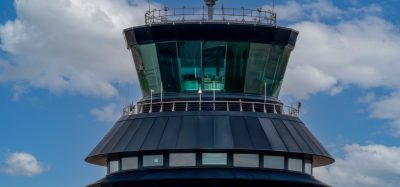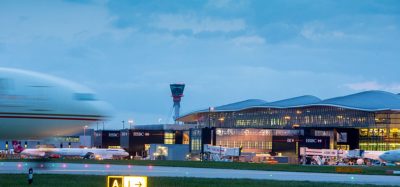Making the journey accessible for every passenger
Posted: 20 November 2018 | Nathalie von Bomhard | 1 comment
Nathalie von Bomhard, Head of IT Management for Fraport’s FraCareServices, discusses how airports can leverage optimisation software to meet the needs of passengers with reduced mobility.


For non-disabled individuals, air travel can be challenging enough, but for those with disabilities and impairments, navigating airport and aircraft logistics can seem like an impossible challenge. Passengers with reduced mobility (PRM), often find it very difficult to get around airports that were not designed with their needs in mind. Upon arrival at the airport, checking in themselves and their baggage, as well as their mobility devices can be quite daunting. Then, they must get to their gates, board the aircraft, and get seated; all quite difficult processes. When it’s time to disembark, the whole process of getting out of their seats, off the plane, over to the baggage carousel to recover their luggage and wheelchair, walker, etc. is again quite exhausting.
In many cases, passengers with disabilities and impairments must wait for assistance from airport or airline staff. Often, the wait is longer than desired, and the assistance does not quite meet expectations. This reality has not been lost on regulatory agencies that have developed legislation and regulations to protect the rights of passengers with disabilities. Nor have the airports and airlines been ignoring the problem. To the contrary, many are looking at new ways to better meet the needs of passengers with disabilities.
One group, Fraport AG Airport Services, which operates at Frankfurt Airport and maintains an interest in several other airports, along with Deutsche Lufthansa AG, set out to improve the experience for passengers with disabilities using Frankfurt Airport. A closer look at the problem, the related regulations, and how these two organisations teamed up with INFORM GmbH, a global leader in optimisation software, reflects the progress being made in this critical area.
Join us live: Shaping the Next Generation of Hold Baggage and Air Cargo Screening
Join us live for an insightful webinar on 11th December at 14:00 GMT, in collaboration with Smiths Detection, as we explore the strategic balance of operational efficiency, regulatory compliance, and sustainability in high-volume security environments.
This session offers a focused look into future-proofing your security strategy.
Key learning points
- Cost Reduction: Strategies to minimize bag travel time while simultaneously reducing operational costs.
- Regulatory Roadmap: Insights into the next wave of regulatory changes and their impact on future investment decisions.
- Sustainable Systems: Practical approaches to building sustainability into security systems and lowering the total cost of ownership (TCO).
- Scalable Solutions: Real-world examples of scalable systems supporting current airport growth and preparing for tomorrow.
Register now for expert insights, case studies, and actionable strategies on operational efficiency!
A pervasive problem
According to data collected through a European health and social integration survey (EHSIS), there are an estimated 70 million people aged 15 and above in the European Union with disabilities. Approximately 10 per cent of these individuals have a disability which causes mobility difficulties. In the United States, domestic carriers transport an estimated 15 million passengers with disabilities annually. For them, mobility was cited as one area which creates the greatest barrier to their travel. As we can all attest, navigating major airports can be challenging for non-disabled individuals, but for individuals with disabilities, it can be near to impossible without assistance beyond just their wheelchairs and/or other mobility aids. Unfortunately, the assistance they often receive from airport and/or airline staff isn’t always what it should be. This reality was reflected in a Report of the Secretary of Transportation to the United States Congress.
In the Secretary of Transportation’s Annual Report on Disability-Related Air Travel Complaints Received during Calendar Year 2016, it was noted that, data provided by 34 U.S. carriers and 150 foreign carriers cited 27,842 disability-related air travel complaints for the U.S. carriers and 4,603 for the foreign carriers. In both categories, the number of complaints had increased over the number reported in 2015.
Regulations to protect the rights of PRM
The experience of passengers with disabilities is being addressed in regulations across the globe. The U.S. Department of Transportation (DOT) issued a rule (Title 14 CFR Part 382) which both defines the rights of passengers and the obligations of airlines under the law. It applies to all flights of U.S. airlines and to flights to and from the U.S. by foreign airlines. In it are prohibitions of specific discriminatory practices affecting individuals with disabilities (e.g., refusing transportation on the basis of a disability, requiring advance notice by a person with a disability who wants to travel, limiting the number of individuals with disabilities on a flight, preventing an individual with a disability from having a specific seat based on the disability, etc.). Also included are facility accessibility requirements (e.g., new aircraft with 30 or more seats must have movable aisle armrests on half of the aircraft’s aisle seats, new twin-aisle aircraft must have accessible lavatories, new aircraft with 100 or more seats must have priority space for storing a passenger’s folding wheelchair in the cabin, etc.). Additionally, there are other services and accommodations, as well as administrative provisions included in the U.S. DOT rule.
There are similar provisions designed to protect the rights of individuals with disabilities presented in the European Union (EU) Regulation 1107/2006 which regulates all European air carriers operating flights departing from and to European airports, as well as European air carriers departing to and arriving from airports located outside the EU. Another provision includes the IATA Resolution 700.
FraCareServices GmbH: A joint venture
Driven to provide a better experience for PRM, and further prompted by the 2006 enactment of the EU 1107/2006 regulation, Fraport AG and Lufthansa AG formed the joint venture, FraCareServices GmbH (FraCareS).
Lufthansa had previously provided solutions to assist passengers with reduced mobility for several airlines, and had the expertise and synergies relating to employees, information systems, technology and hardware in place. These competencies were applied to the Fraport culture. FraCareS currently aids 700,000 passengers with an annual growth of 10-15 per cent. An estimated 750 employees implement these solutions and services. These PRM packages are financed by all passengers that use the airport via a legally stipulated flat fee. In contrast, airlines that want a premium package, and/or want to provide care for unaccompanied minors, are charged on a fee-based service which is billed per passenger. With this said, Frankfurt Airport posed unique challenges for passengers with reduced mobility which FraCareS particularly wanted to address.
Frankfurt Airport’s infrastructure and design/layout presented a unique problem with providing assistance to PRM. When designed, it was hailed as outstanding with its layout shaped like two stars enabling easy operation of the eight gates per star in what was Concourse B. Over time, however, as the passenger volume increased, there was the need for more gates. This was addressed by adding long hallways. Then, with further growth and expansion, a second level was added to the airport which made it possible to separate arriving and departing passengers by destination into international and the Schengen area countries. The longer distances passengers and employees now had to cover, along with the multi-levels, made moving through the airport even more difficult. Another obstacle, particularly for PRM and employees helping them to their planes, was passing through security check points. Keep in mind that not only were airline employees providing assistance to these individuals, but in some instances, external service providers were also used. At Frankfurt, each of the 200 airlines had its own system on how to provide assistance services to PRM, further adding to an already complex challenge.
INFORM Optimisation Solutions for FraCareS
INFORM’s software sought to help FraCareS optimally:
- Plan and manage its resources for assisting PRM in real-time
- Implement individual assistance services
- Continually document those services within one system.
To meet these objectives, two INFORM solutions were deployed from its comprehensive GroundStar suite. There is a PRM-specific real-time scheduling solution for staff and equipment. It enables dispatchers to modify staff shifts and staffing levels based on need and better monitor the workflow, which creates a proactive operations management approach. Additionally, the software facilitates more streamlined communications between dispatchers and other staff, while promoting a seamless exchange of relevant information including data relating to how various tasks are progressing. The solution’s ability to provide dispatchers with regularly updated, real-time information on the status of resource scheduling and ground handling activities also enables them to intervene and respond when countermeasures are warranted which, in turn, contributes to improve on-time performance.
As a complement to the real-time scheduling solution, there is an INFORM mobility solution that supports staff communication using their mobile devices/smart phones. Its primary role is to ensure optimal decision-making stemming from timely, comprehensive communications to the staff and the ongoing monitoring of operations. The mobility solution supports data access and communications via a wide range of devices, from mobile/smart phones and Windows personal digital assistants, to devices mounted in vehicles, tablets, interactive voice response systems, staff kiosks and monitors placed in staff rooms. It efficiently displays such information as task allocations and, staff check-ins/check-outs, as well as allowing operational data to be collected and reports generated to reveal unexpected events.
In other words, using the PRM-specific scheduling solution, FraCareS optimises the use of its resources, better navigates the increasingly complex air transport environment, and anticipates challenges before they escalate into problems. Using mobile devices additionally leads to process improvements delivering real benefits to FraCareS which, in turn, is enabling the organisation to provide a greatly improved experience for their PRM.
FraCareS is now benefiting from optimised dispatch of passenger assistants and transport equipment at key service points such as check-in, transfer desks, lounges and boarding areas. As a result, the level of service provided to PRMs has been greatly improved, waiting times significantly reduced and compliance to Service Level Agreements (SLAs) achieved. Furthermore, staff productivity has increased with throughput up by 35 per cent using the same size workforce. Additionally to this there has been a 50 per cent reduction in voice communication, which has contributed to a measurable reduction in operating costs.
Other benefits FraCareS is deriving from the PRM-specific solution include: the integration of existing airport and airline systems (i.e., FIS, AOD, SITA, etc.) for automatic passenger bookings, accurate operational data such as recorded ‘Meet and Greet’ time stamps, documentation of customer service-oriented key performance indicators (KPIs), and efficient data exchange with the rostering system and the check-in/check-out system database. The solution also provides FraCareS with easy access to vital bench-marking data (e.g., assignment data communicated via employee devices).
Through the mobility solution, passenger assistants can stay abreast of PRMs’ needs through the recording of task status updates, passenger pick-up information and other passenger needs. If there are any unexpected contingencies or disruptions arise, updates are sent into the central system for immediate response and optimised revised planning measures. A state-of-the-art user interface has promoted improved productivity. SLAs and airport operator contract requirements are being met, if not exceeded, further helping to position the operator to win more tenders.
Closing remarks
During the application of INFORM’s GroundStar solutions, a concerted effort was made to demonstrate intensive support for the FraCareS staff during the introduction phase of the new software. It is particularly important that all colleagues within the ranks of the FraCareS organisation, who would be using the real-time scheduling and mobility solutions, have a full understanding of the processes. Due to the extensive training and ongoing support provided by INFORM, the new solutions were readily accepted by the FraCareS team members. Today, FraCareS is confident in knowing it has taken a major step in meeting the needs of PRMs using Frankfurt Airport.
Biography
Nathalie von Bomhard has been with FraCareServices since 2008. The joint venture between Fraport and Lufthansa offers an assistance service to persons with reduced mobility and disabled passengers at Frankfurt Airport. Nathalie is responsible for INFORM, Lufthansa and Fraport’s IT systems and training (including mobile devices as communication tools next to PCs) in order to handle and document this service.
The International Airport Summit is open for registration!
Date: 19 – 20 November 2025
Location: JW Marriott Hotel Berlin
At our flagship event of the year, we will dive into the future of airport operations, with expert-led sessions on passenger experience, innovative smart technologies, baggage handling, airside operations, data, security, and sustainability.
This is where global airport leaders come together to share insights, challenges, and real-world solutions.
Limited complimentary passes are available for eligible professionals – first come, first served!
Related topics
Accessibility, Airside operations, Passengers with reduced mobility (PRMs), Terminal operations
Related airports
Related organisations
European Union (EU), Fraport AG, The U.S. Department of Transportation (DOT)


















In most of the blogs I search for mobility aided tools no one can fulfil my expectation without you. So I highly appreciate your work. You discuss the mobility assistance travelling step by step, As a wheelchair user, this is a great help for me.
I agree with your opinion wheelchairs are the best friend of a disable person.